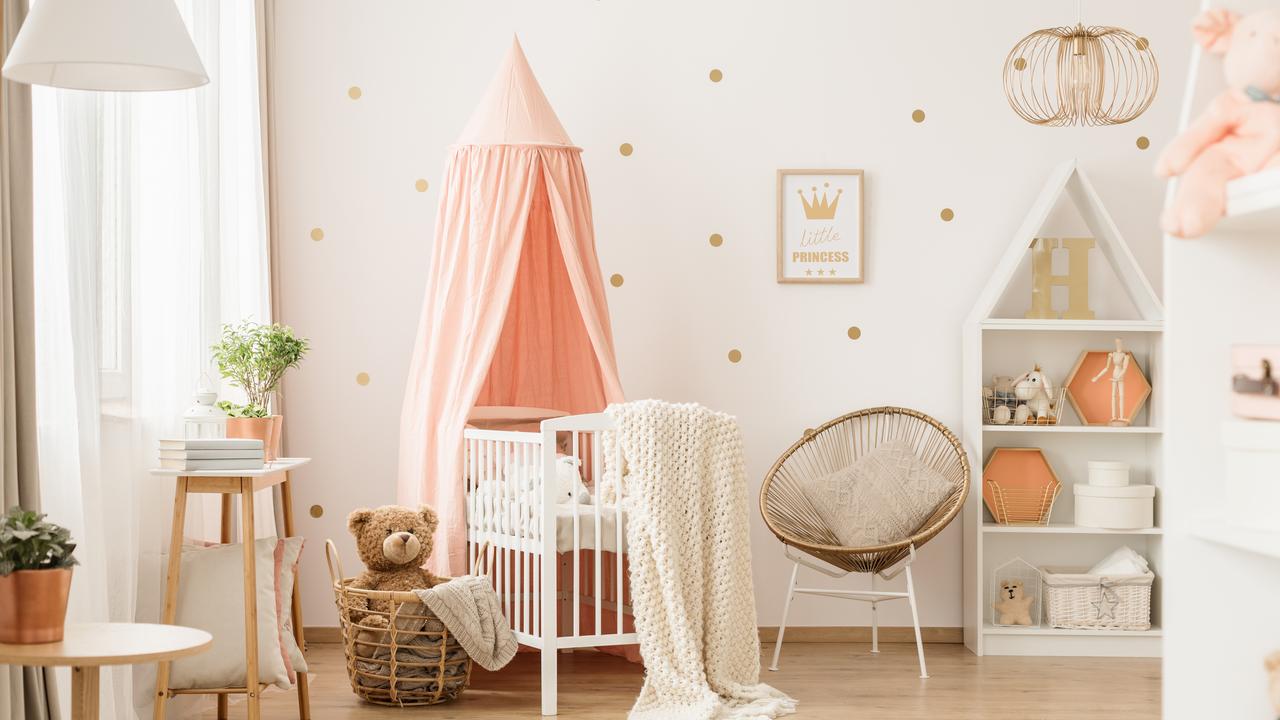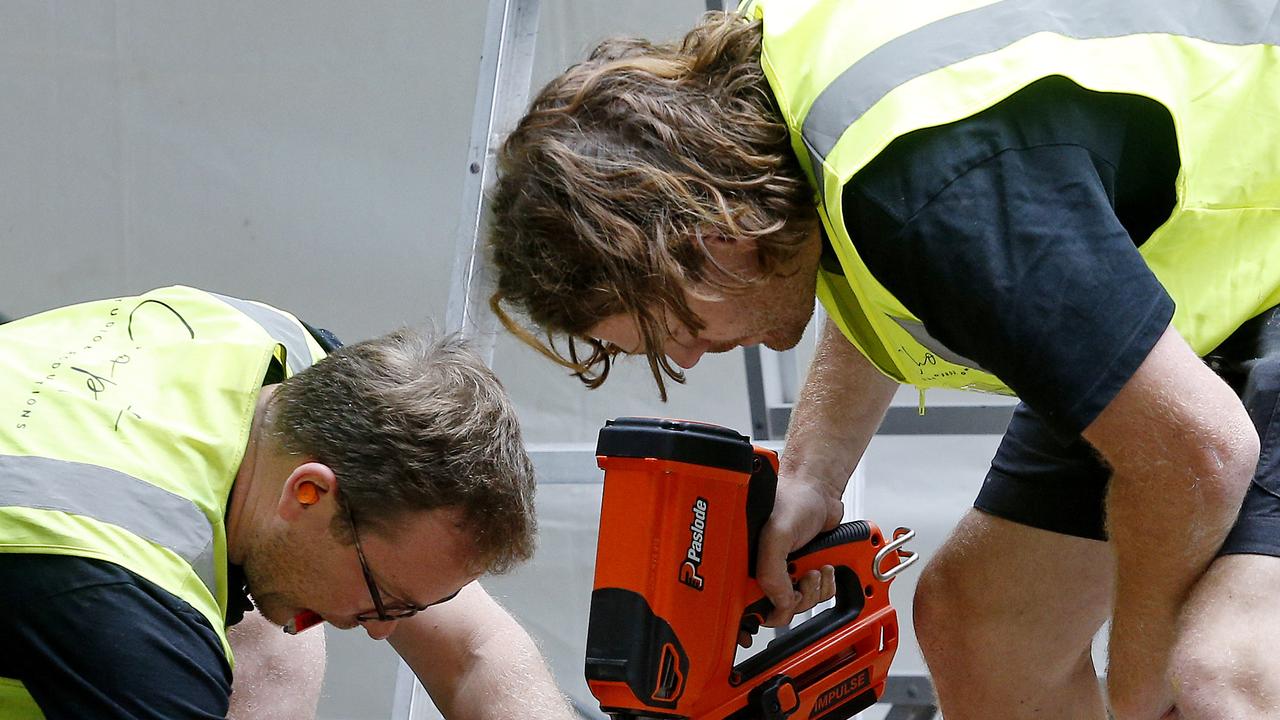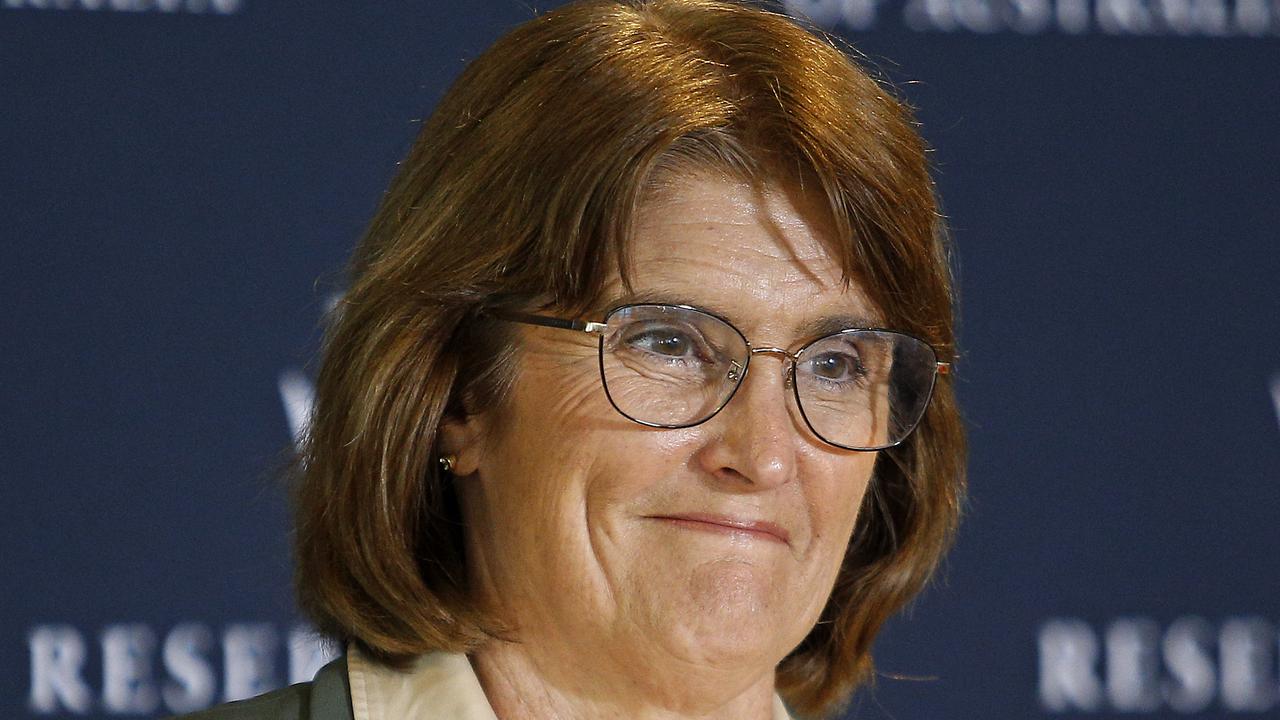People need to save $10K before welcoming a new baby to the family
Research has found that first-time parents are taking a huge hit to their finances because they don’t realise how much a new kid costs.

Having babies is a lot more expensive than most first-time parents expect, according to new research, which showed 75 per cent seriously underestimated the hit to their finances.
Stress over money was a huge factor with parents surprised by the costs of essential items like nappies, a cot and a car seat, as well as formula, increased household bills and childcare, a study from the member owned bank CUA found.
Almost a quarter of parents surveyed recommended saving more than $10,000 before having a baby, while 38 per cent said $5000 to $8000 was sufficient.
First-time mum Casey Ollier had her daughter Billie 13 weeks ago and plans to take a year off to care for her. She and her partner Brad Decker saved $5000 over nine months before their daughter’s arrival.
RELATED:Mum’s pregnancy surprise reveals insurance mistake

Despite planning for Billie’s arrival, Ms Ollier said she got a financial “shock” when Billie was forced to go on to formula due to a reflux issue with a tin costing $30 a week.
“I get how some parents could be overwhelmed by the nappies and formula as they cost a lot and because Billie had reflux she had to get medication,” she said. “She’s got a bacterial thing on her face, which requires a specialised cream, and stuff like that adds up.”
The nursery set up was also very expensive, along with necessities like a pram, added Ms Ollier. She spent $200 on bottles, $1000 on a pram and another $1000 on a cot and change table.
RELATED:DIY dad’s fix to stop messy meals

She has also been surprised at how quickly Billie has grown as there are already loads of clothes that no longer fit and she has been out to buy more.
With family in Queensland, regular trips to show off Billie are also adding up, said Ms Ollier.
“We didn’t realise you actually have to pay for children now, so that was an additional cost that we didn’t know about and its $40 each way,” she said.
Nearly half of parents surveyed for the CUA research wished they had put more money aside in preparation for their first child, and just over a quarter said they had not saved anything.
CUA’s chief customer officer Megan Keleher said having a new baby can be a time of decreased income and unexpected costs.
“Expectant parents should assess the possible impact a single income or extended career pause could have on their ability to meet financial deadlines and use this as a base when devising their budgeting or saving goals,” she said.




